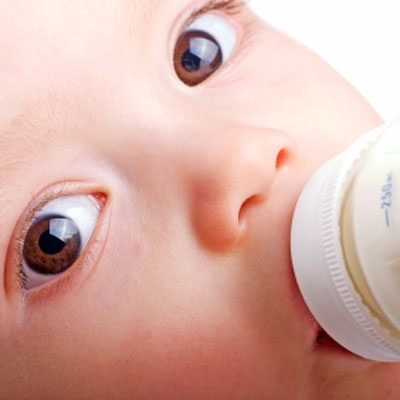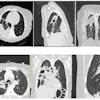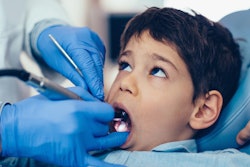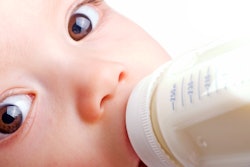
New research suggests that infants who are formula fed share more of their mothers' oral microbiome than babies who are only breastfed. The findings were published on January 18 in the journal mBio.
The researchers, led by Shinya Kageyama, PhD, of Kyushu University in Fukuoka, Japan, discovered that mothers who fed their babies formula instead of breast milk (or a combination of the two) had more bacterial amplicon sequence variants (ASVs) in common with their babies compared to infants who were exclusively breastfed. In other words, the genetic makeup of those oral microbiota was more closely shared between mother and child.
In the study, the researchers examined 892 tongue swab samples collected from 448 pairs of mothers and infants (217 male, 231 female) when the infants were 4 months old. The samples were measured for bacterial abundance and the ASVs shared between mother and child. ASV refers to a DNA sequencing approach where sequences can be resolved down to a nucleotide difference in the DNA, thus providing a high-resolution picture of the implicated microbial strains.
The percentage of shared ASVs varied widely among the mother-infant pairs, ranging from almost 0% shared oral bacteria to almost 100%, the authors noted. The colonization of a mother's oral bacteria was higher in formula-fed infants. Newborns related to their mothers also shared a significantly higher abundance of ASVs than infants unrelated to their mothers.
The researchers offered two hypotheses to explain the impact of the feeding styles on the oral microbiome. The first is that protective factors in breast milk regulate mother-derived oral bacterial colonization; the second is that differences in substrates provided by maternal milk and formula influence an infant's oral microbiota profile.
Beyond breastfeeding, the researchers found no differences in oral bacteria abundance, including when looking at the sex or age of the child, the delivery mode, or the child's antibiotic use. In future work, they plan to follow up on the same study population at the time of the infants' three-year checkups.
Researchers have long strived to understand the connection between the diversity of microbial communities in the oral cavity and associated human diseases. How mothers share and shape their baby's microbiota may offer insights into the earliest connections to diseases later in life. The authors posited that by tracking the exchange of microbes between mother and child, researchers may be able to develop novel approaches to developing healthy oral microbiota.
"The elucidation of the microbial acquisition process can eventually facilitate the creation of a novel approach to inducing healthy development of oral microbiota and preventing oral microbiota-related diseases," they wrote.



















